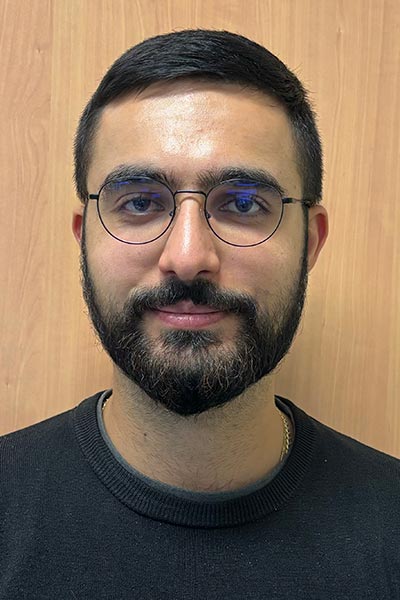
Poster presenter: Sacha E. Silva-Saffar, Pharmacist and PhD Student, Paris-Saclay University, France
Poster title: Computational Systems Biology Approach to Unveil Molecular Interactions in Sjogren’s Disease Pathogenesis
Poster session B: Sunday, Nov. 17
What is your poster about?
“My poster presents an exploration of my PhD research project, which utilizes a computational systems biology framework to uncover the molecular interactions involved in Sjögren’s disease pathogenesis. By integrating transcriptomic data analysis, bioinformatics tools, and literature curation, my project seeks to develop a comprehensive model that elucidates the complex biological processes contributing to the disease. The aim is to enhance our understanding of the disease at a molecular level and open up possibilities for new therapeutic targets by identifying key molecular players and their interactions.”
Why did you decide to investigate this topic?
“My fascination with autoimmunity, particularly its intriguing connection with cancer, has been a driving force behind my research interests. Sjögren’s disease presents a unique opportunity to explore this intersection, as it is an autoimmune condition that has also been associated with an increased risk of developing lymphomas. Combining my clinical background as a pharmacist and my expertise in bioinformatics, I wanted to investigate a topic that allowed me to leverage both of these domains. The ability to use advanced computational tools to address pressing clinical questions made this project an ideal match for my career goals and scientific curiosity.”
What are you working on next related to this research?
“The next phase of my research focuses on the parametrization of the model I have developed, which will allow for more accurate predictions of disease progression. We will also work on identifying novel drug targets by mapping interactions between disease-relevant molecules, aiming to discover key pathways that can be modulated with existing drugs or new compounds. This phase is critical to translating the theoretical model into practical clinical insights, with the goal of contributing to personalized treatment approaches for patients with Sjögren’s disease.”
What excites you most about your work?
“It has to be the unpredictability and constant learning that comes with scientific research. Each dataset, computational analysis, or literature finding can reveal new patterns or hypotheses, leading to novel insights into disease mechanisms. The interdisciplinary nature of my work, which combines clinical knowledge with computational methods, keeps me continuously engaged and excited about future discoveries. The prospect of my work eventually benefiting patients by identifying new therapeutic strategies also gives me great motivation and fulfillment.”
What are you most looking forward to at ACR Convergence 2024 in Washington, D.C.?
“I am keen to deepen my knowledge of the latest advancements in rheumatology and autoimmunity.”

Registered ACR Convergence 2024 Participants:
Watch the Replay
Select ACR Convergence 2024 scientific sessions are available to registered participants for on-demand viewing through October 10, 2025. Log in to the meeting website to continue your ACR Convergence experience.
